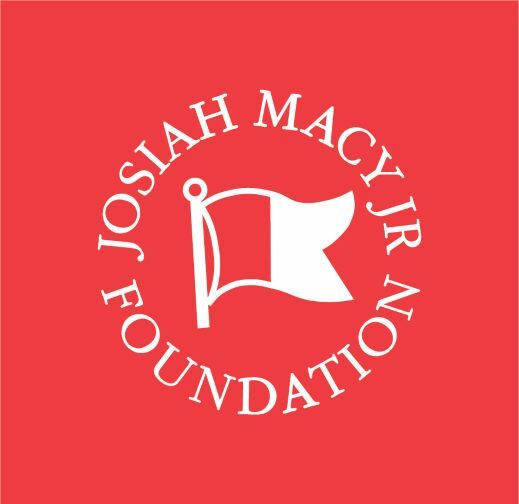
During the 1977 oral arguments delivered to the U.S. Supreme Court in the Regents of the University of California vs. Bakke case, Archibald Cox, one of the most cited legal scholars of the 20th century, drew upon a report commissioned in 1976 by the Josiah Macy Jr. Foundation. This report, Minorities in Medicine: From Receptive Passivity to Positive Action 1966-1976 by former University of Washington President Charles Odegaard, laid out a strong argument for the importance of minority recruiting to counter the negative effects of racism as well as the need to support people of color in the educational system. (1) This report was described by Archibald Cox as he prepared to make his arguments in favor of race-conscious admissions as “the best reference book on this subject.” (2) And in their 1978 decision, the Supreme Court established the precedent that for 45 years has allowed colleges and universities to engage in race-conscious admissions. Today, that precedent—twice reaffirmed by the Court in the interim—has been substantively weakened.
Equal treatment —the principle which underlies the decision made by the Court today—is attractive in the abstract. Our society and our educational institutions do not exist in the abstract, however, and the Supreme Court’s recent decision will, we greatly fear, be used as a tool to institutionalize and to perpetuate race-associated disadvantages based on centuries of oppressive practices. (3) In today’s decision, Chief Justice John Roberts wrote that many institutions “have for too long wrongly concluded that the touchstone of an individual’s identity is not challenges bested, skills built, or lessons learned, but the color of their skin.” (4) In return, we would say that, for too long, too many societal structures—including education and health care—have wrongly concluded that the touchstone of an individual’s identity is the color of their skin and not the “challenges bested, skills built, or lessons learned.”
There is no shortage of data about health inequities in our country. (5) There is no shortage of data that a diverse health care workforce yields better outcomes for diverse patients. (6) The Josiah Macy Jr. Foundation has a long history, of which we are very proud, of supporting diversity, equity, and inclusion in health professions education. (7) Indeed, it is one of three priority areas for our funding, and we firmly believe that all health professions educational institutions must authentically commit to the work of diversity, equity, and belonging as a core component of their missions, i.e., to make their working and learning environments accessible and welcoming to all who work, learn, and receive care in our health systems and to embed health equity as a central component of health care.
In affirming this, I am drawing not just on the plethora of quantitative data demonstrating the significant connection between diversity in the health professions and patient health, but on the evidence of my own eyes. I have many examples from my 30+ years as a Program Director and Dean for Medical Education of witnessing residents and students using shared experiences and identities to forge meaningful connections with patients when other members of the team could not. Oftentimes, these were the most vulnerable of our patients—those most likely to fall through the cracks of our health care system, to be marginalized and overlooked.
Just as our nation’s service academies have recognized the value of diversity in the leadership of our armed forces, so does the Josiah Macy Jr. Foundation understand representation in our nation’s health professions as critical to the safety, security, and well-being of our nation’s people. (8) In fact, Chief Justice Roberts exempted military academies from today’s ruling in light of “the potentially distinct interests” they present. We remain steadfast in our belief that diversity in the health professions also represents a “distinct interest.” In fact, it is fundamental to the health and well-being of the most diverse population that the United States has ever known.
As we consider the impact of this decision on who will become our future physicians, nurses, and health care providers, the Josiah Macy Jr. Foundation affirms its unwavering support for measures that advance diversity, equity, and belonging in health professions education.
Our guiding principle is that health professions education has at its core a strong social mission: to serve the public’s needs and improve the health of the public. We will not deviate from this principle.
Holly J. Humphrey, MD
President, Josiah Macy Jr. Foundation
Related stories:
- https://macyfoundation.org/news-and-commentary/macy-foundation-reaffirms-our-values-and-prioritie
- https://macyfoundation.org/news-and-commentary/an-enduring-commitment-to-health-for-minority-population
- https://macyfoundation.org/news-and-commentary/taking-action-on-harmful-bias-and-discrimination-in-clinical-learning-environments
- https://macyfoundation.org/news-and-commentary/the-next-generation-of-the-macy-faculty-scholars-program
References:
(1) Odegaard C. Minorities in Medicine: From Receptive Passivity to Positive Action 1966-1976. 1977. Josiah Macy Jr. Foundation, New York.
(2) Josiah Macy Jr. Foundation. 1930-1980: A Fifty-Year Review and Report for the Year 1980. 1981. The Josiah Macy Jr. Foundation: New York.
(3) Lempert R. The Supreme Court is poised to reverse affirmative action: Here’s what you need to know. Brookings Institute, June 5, 2023. Downloaded on June 5, 2023.
(4) Students for Fair Admissions, Inc. v. President and Fellows of Harvard College, _U.S._, 20-1199 (June 29, 2023).
(5) National Academies of Sciences, Engineering, and Medicine; Health and Medicine Division; Board on Population Health and Public Health Practice; Committee on Community-Based Solutions to Promote Health Equity in the United States; Baciu A, Negussie Y, Geller A, et al., editors. Washington (DC): National Academies Press (US); 2017 Jan 11.
(6) Snyder JE, Upton RD, Hassett TC, Lee H, Nouri Z, Dill M. Black Representation in the Primary Care Physician Workforce and Its Association With Population Life Expectancy and Mortality Rates in the US. JAMA Netw Open. 2023;6(4):e236687. doi:10.1001/jamanetworkopen.2023.6687
(7) Josiah Macy Jr. Foundation. A History of the Josiah Macy Jr. Foundation’s Grantmaking to Increase Diversity, Equity, and Belonging in the Health Professions. Part Two: Advancing Historically Marginalized and Underrepresented Populations in Health Care. 2019. The Josiah Macy Jr. Foundation: New York
(8) Anderson N. Military academies use affirmative action. Will the Supreme Court stop them? Washington Post. June 14, 2023.